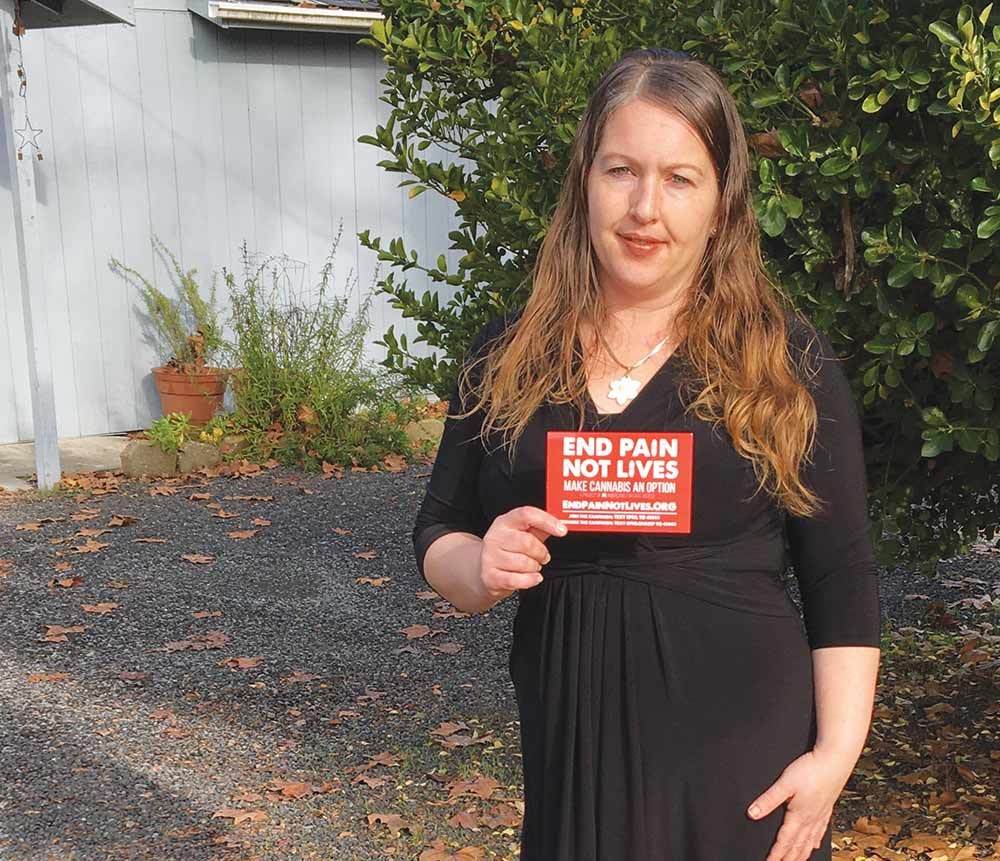Sonoma County marijuana-activist, Sarah Shrader, enjoys quality time with family and friends, though there’s no clear dividing line between her political calling and her personal life. Passionate about the cannabis cause, she’s an inspiration to activists all over the North Bay.
Born, reared and educated in San Francisco, Shrader joined the San Francisco chapter of Americans for Safe Access (ASA) a decade ago. That act changed her life. ASA is the largest U.S. organization of patients, medical professionals, scientists and citizens who want safe, legal paths to cannabis for health, well-being and lab research.
The organization has 100,000 active members in all 50 states. It was recently reborn, Shrader tells me, when it moved headquarters from Oakland to Washington, D.C., and shifted away from “tie-dyed hippie pleas to scientific appeals for legalization.”
After Shrader landed in Sonoma County, she turned the local ASA chapter into a thriving force that now has an extensive network of supporters and an impressive record of educating politicians and citizens.
I’ve seen Shrader in action—she’s fearless when face-to-face with county supervisors such as Shirlee Zane.
At her monthly free workshops at the Arlene Francis Center in Santa Rosa, no one impeaches her facts. She’s also unapologetic about her own use of cannabis to deal with fibromyalgia, a painful disorder she developed after an automobile accident.
“I asked my doctor to prescribe cannabis,” Shrader says. “He said, ‘No,’ but he was willing to give me uppers and downers.”
If Shrader’s auto accident traumatized her, she suffered more trauma after the bust, by DEA agents, of longtime KPFA journalist Jose Gutierrez, the father of her two children. Law-enforcement agents beat Gutierrez during a peaceful protest to prevent the closure of Oaksterdam University, where Shrader is on the faculty.
“Jose’s arrest was streamed live,” she says. “From that experience and others, I saw that ‘The War on Drugs’ was really a war on people.”
After Gutierrez’s arrest, Shrader suffered from PTSD and paranoia. She drove her children to Mendocino, out of harm’s way, though her anxiety level up-ticked when DEA agents descended on her home on Mother’s Day that year.
“We have much to do in 2020,” she says. “Like protect workers fired for using cannabis and also help people addicted to opioids. Ninety-one people die from opioids every day. Cannabis can be a tool to combat their disorder.”
Jonah Raskin is the author of ‘Dark Day, Dark Night: A Marijuana Murder Mystery.’











